Census & Data Justice
In a healthy democracy, every community is fairly counted, represented, and resourced. But data from the census and federal surveys underrepresents people experiencing poverty and communities of color. We advance a vision where the government counts everyone fairly, protects data privacy, and improves data quality.

Administrative data can supplement census data and improve the accuracy and quality of the census. However, poorly designed administrative data projects may inadvertently exacerbate existing disparities that stem from census undercounts, including among people of color and immigrants. This blog argues that administrative data linkage cannot advance equity without improved representation of historically undercounted communities in both census data and administrative data.

The 2020 Census was the first census to incorporate administrative data as a cornerstone of its design to improve survey quality, reduce costs, and lower burdens for everyone responding to the census. To acquire administrative data, the Census Bureau enters into data sharing agreements with government agencies and commercial entities. However, the terms and details of these data sharing agreements are typically inaccessible to the public. This blog highlights the advantages and potential risks of data sharing and underscores the need for increased transparency in data sharing agreements.

Millions of people living in the U.S. territories—including American Samoa, Guam, the Northern Mariana Islands, Puerto Rico, and the U.S. Virgin Islands—are often excluded from federal statistical data collection. This contributes to a significant racial justice issue. Without comprehensive data, policymakers and researchers cannot fully understand the socio-economic challenges faced by all U.S. residents, including people living in the territories, who are disproportionately people of color. This blog—originally published by the Leadership Conference on Civil and Human Rights—highlights the disparities in data collection between the U.S. territories and the rest of the U.S., the need for collecting high-quality data in U.S. territories, and the negative implications of analyzing an incomplete portrait of the nation.
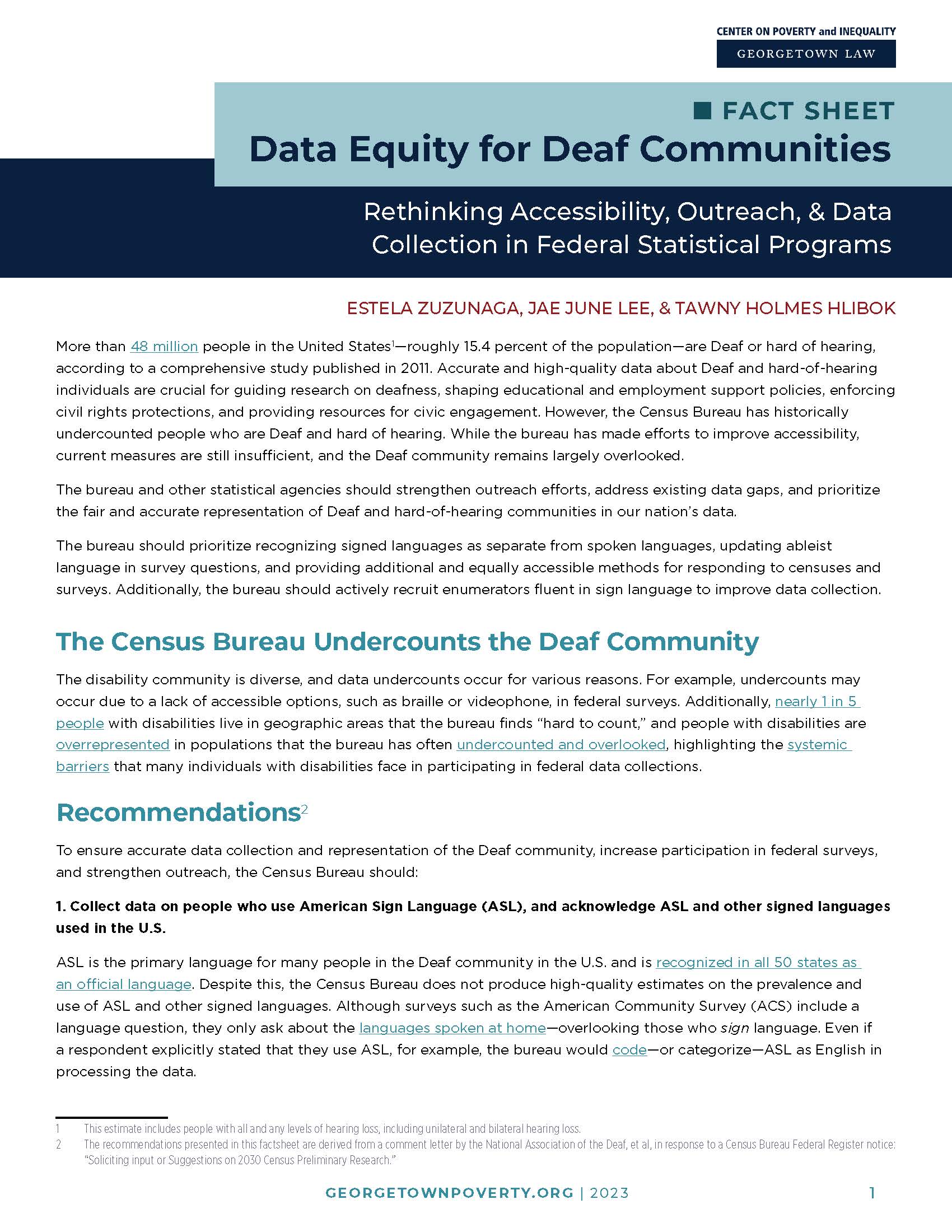
Accurate and high-quality data about Deaf or hard-of-hearing individuals and families are crucial for guiding research on Deafness, shaping policy for educational and employment support, enforcing civil rights protections, and providing resources for civic engagement. However, the Census Bureau undercounts and underrepresents Deaf or hard-of-hearing people, and fails to collect data about the use of their primary languages—American Sign Language and other signed languages. This fact sheet highlights several key data concerns and offers recommendations to improve engagement with Deaf and hard-of-hearing people and collect complete and accurate data.

The U.S. cannot fully understand itself as a nation and the needs of its people without timely, complete, and accurate statistics on all of its citizens and residents. However, millions of U.S. citizens and residents living in the U.S. territories are not included in many key government data collection efforts and publications. These data disparities undermine the ability of policymakers and researchers to understand national and local challenges, including the unique risks posed by the climate emergency and pervasive social and economic inequalities. This brief—published jointly with Equally American—analyzes the implications of inadequate data collection in the U.S. territories and recommends steps federal policymakers can take to improve the timeliness and accuracy of data and understand the social, environmental, and economic challenges residents of U.S. territories face.
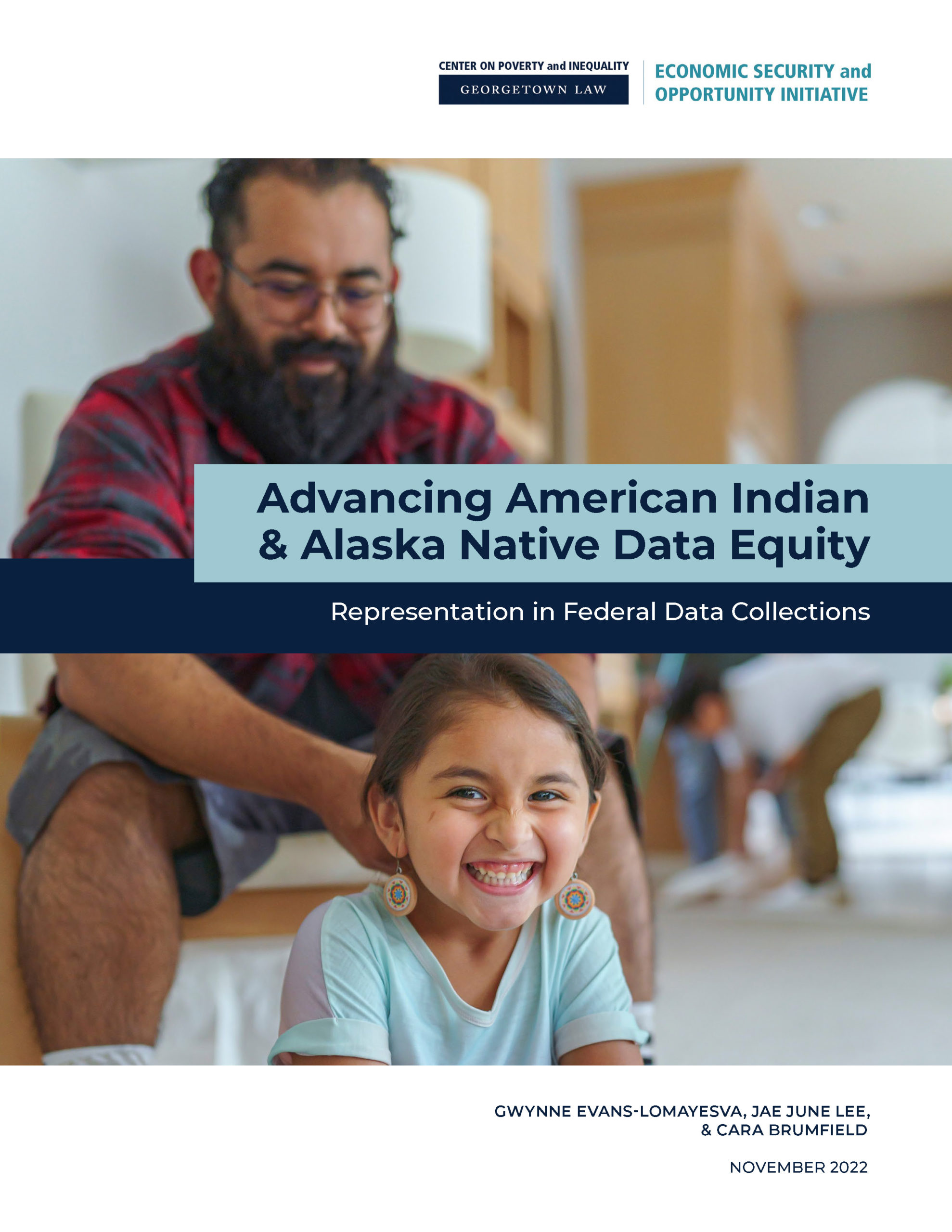
The United States must improve its data collection efforts in order to ensure equitable representation of American Indian and Alaska Native (AI/AN) populations. Inequitable data have deep and pervasive impacts on American social, political, and economic systems. The current lack of accurate, reliable, and sufficiently detailed data risks making AI/AN peoples invisible to policymakers and reinforcing existing dynamics of marginalization. This report explores the history of AI/AN data in federal data collections, describes some nuances of working with AI/AN population data, and highlights the undercounting and underrepresentation of AI/AN populations in federal data collections. It also recommends proposed changes to data collection to increase equitable representation for AI/AN populations, which must be done in consultation with Tribal Nations in accordance with tribal sovereignty.
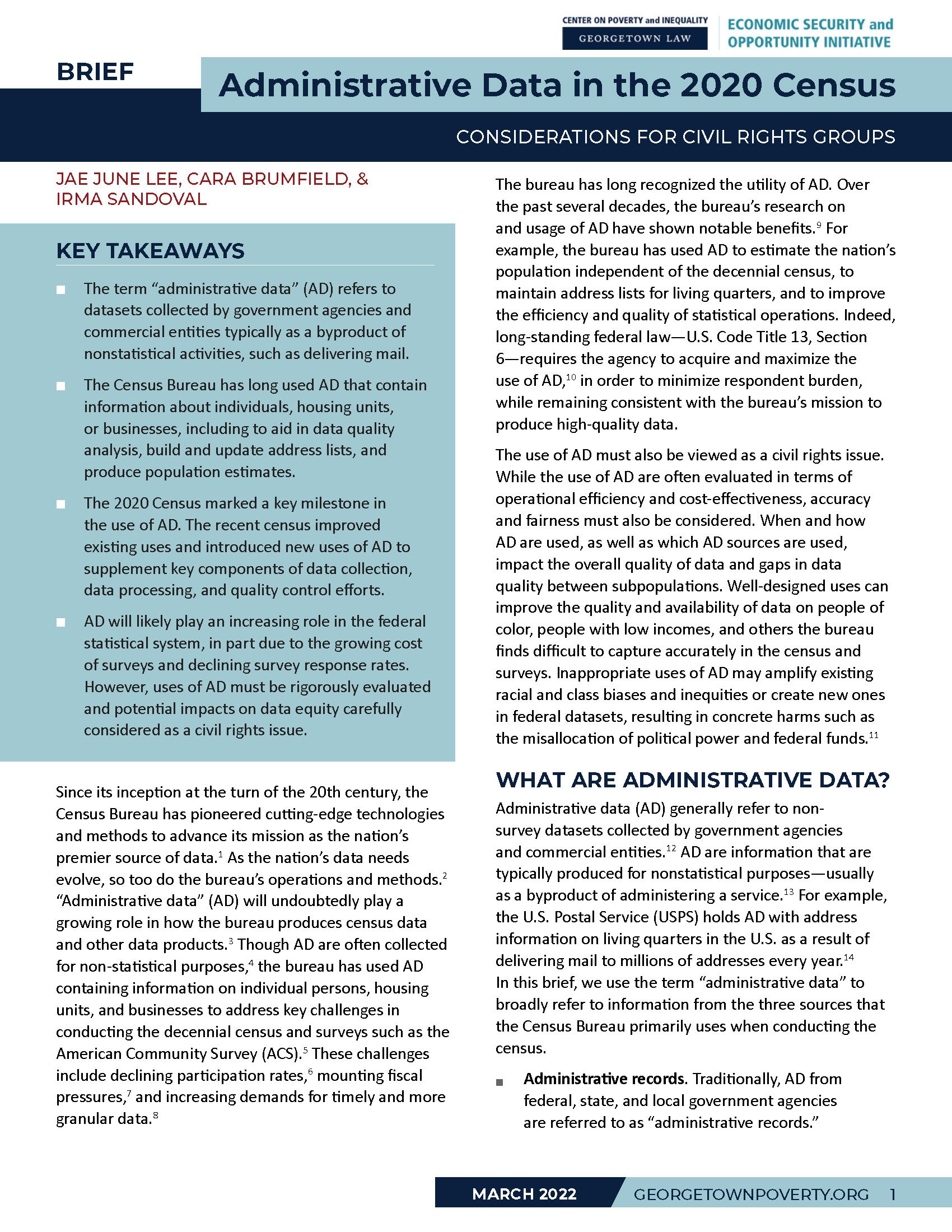
Since its inception at the turn of the 20th century, the Census Bureau has pioneered cutting edge methods and technologies to meet the vast and increasingly complex challenge of counting everyone in the United States. Civil rights organizations often work with the Census Bureau to ensure that innovations advance the accuracy and fairness of the decennial census. This brief focuses on one of the most significant areas of innovation over the past century: the use of “administrative data” (AD). AD are typically collected by government agencies and private-sector organizations while administering a program or service. For example, the U.S. Postal Services collects address information while delivering mail, creating an address dataset. This brief provides a definition of AD and a summary of how AD were used in the 2020 Census. The brief also introduces some key equity considerations regarding AD usage and offers potential next steps for civil rights groups.
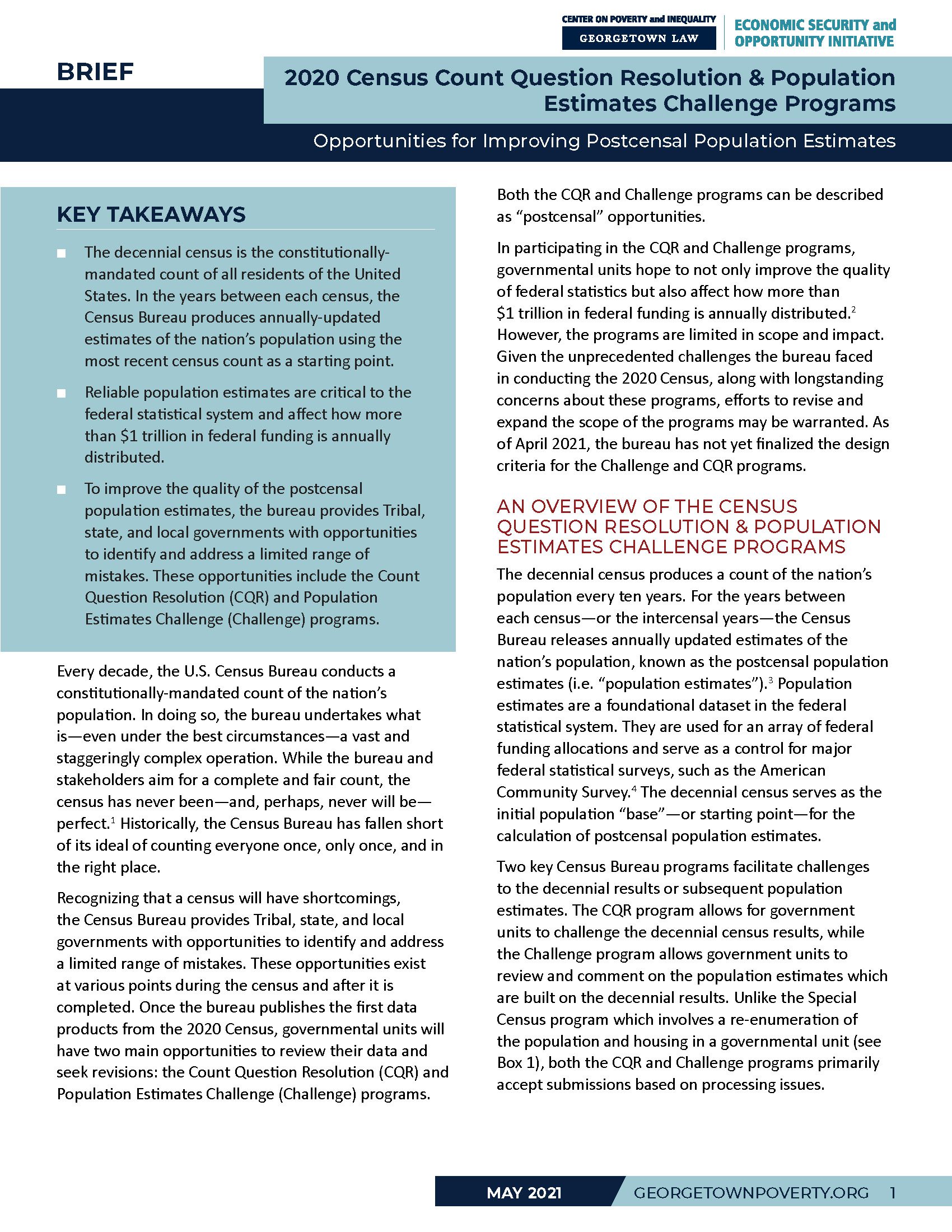
Census data are essential to equitable distribution of political power and federal resources for programs that support economic security, health, education, and more. In the years between each census, the Census Bureau produces annually-updated estimates of the nation’s population using the most recent census count as a starting point. To improve the quality of these updated population estimates, the bureau provides Tribal, state, and local governments with opportunities to identify and address a limited range of mistakes. These opportunities include the Count Question Resolution (CQR) and Population Estimates Challenge (Challenge) programs. This brief provides a clear description of these programs (and their limitations) to help stakeholders understand and engage in these opportunities to pursue more accurate population estimates.

The goal of the decennial census is to count everyone once, only once, and in the right place. However, the Census Bureau has historically overcounted certain groups—including white people—while undercounting others—including people of color, young children, and people experiencing homelessness. These gaps undermine the fairness of the census and contribute to an inequitable distribution of political power and federal resources for programs that support economic security, health, and education. This working paper examines the self-response rates to the 2020 Census by various socio-economic, demographic, and housing characteristics in order to gain timely insights into the potential accuracy of the 2020 Census. The paper finds that the 2020 Census likely will contain similar inaccuracies seen in past censuses.
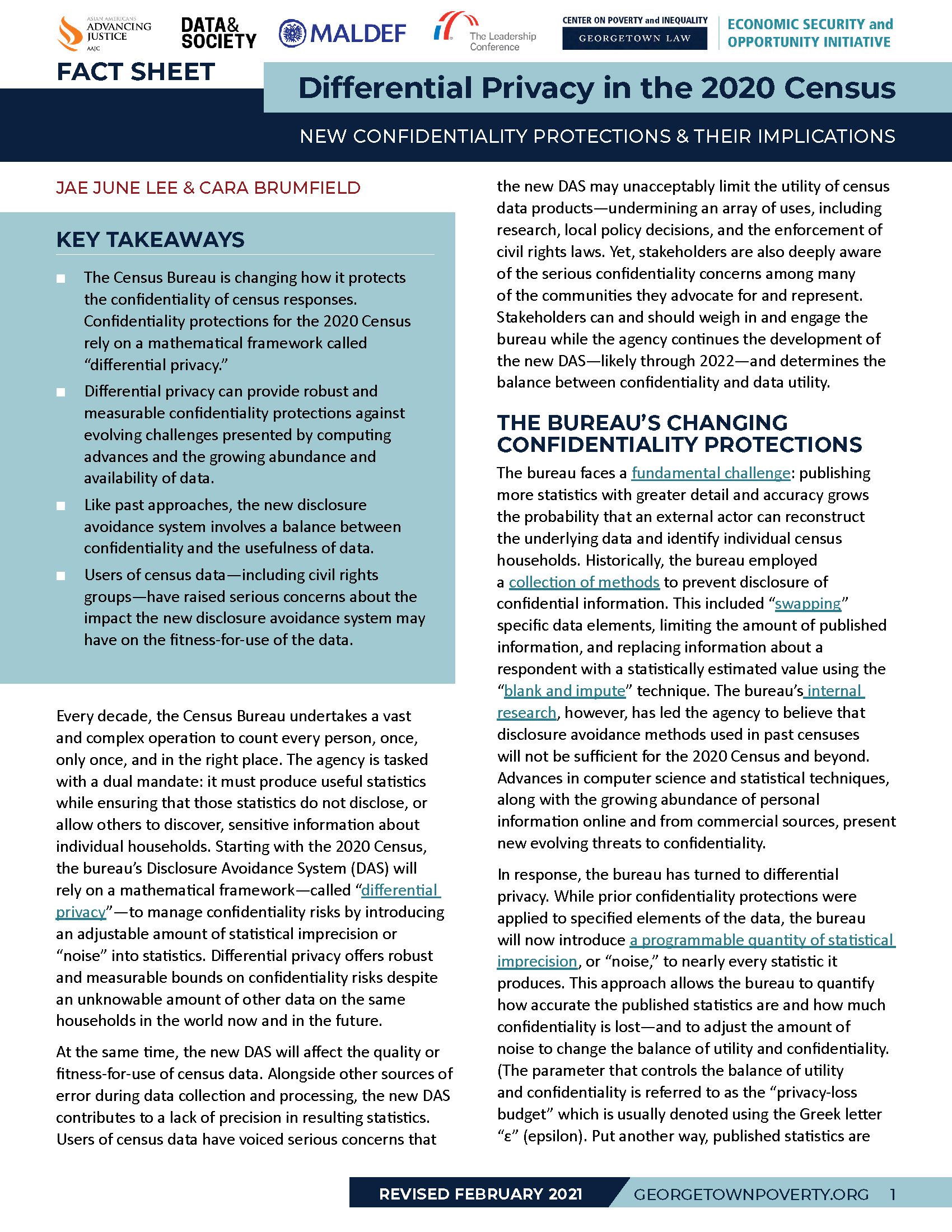
The Census Bureau is modernizing its confidentiality protections for census responses. At the heart of this new approach is a mathematical definition of confidentiality called “differential privacy.” This fact sheet—published jointly with Data & Society and the Leadership Conference on Civil and Human Rights—provides a brief introduction to differential privacy, outlines the implications of the changes for data users, and encourages stakeholders to provide feedback to the Census Bureau.
